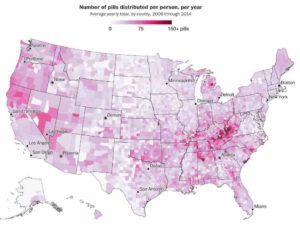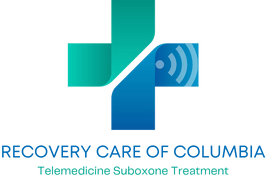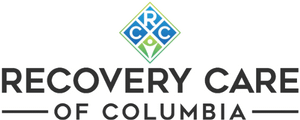Columbia Suboxone Clinic Blog
Suboxone Therapy for Opioid Addiction Now in Columbia Tennessee
Chances are, if you’re here it’s not by accident. You’re most likely looking for a solution for opioid addiction and addiction treatment near Columbia, TN.
You are not alone.
Addiction Numbers Have Surpassed Alcoholism for the First Time in History
Alcoholism has always been the #1 offender when it comes to substance abuse, but that’s no longer true.
Addiction is now ahead of alcoholism – more people are addicted to opioids than are people struggling with alcohol.
 Unfortunately, Maury County, TN is considered to have a higher than normal population of addicted users than amny other counties across the United States according to the DEA.org database as published by the Washington Post.
Unfortunately, Maury County, TN is considered to have a higher than normal population of addicted users than amny other counties across the United States according to the DEA.org database as published by the Washington Post.
Looking at the map on the left, you’ll notice the areas with darker red markings, showing much of middle Tennessee and surrounding counties being among the most heavily-addicted in the United States. Recovery Care of Columbia is here to help reduce these numbers if at all possible.
Click here to read DEA prescription pain pill stats specific to Maury County TN
How bad is it? Over 64,000 people died in 2016 from addiction”. (Source: drugabuse.org)
Rare is it that you meet someone who hasn’t been touched in one way or another by addiction. Usually, it’s a brother, sister, parent, cousin or coworker that someone knows that’s shown them the downright destructive results of being addicted to opioids.
Sadly, it’s seeing people do things they normally would never do that surprises people most. People lie, steal, make excuses, miss work, miss family events, and more, all thanks to their drug addiction.
How Can Someone Stop Chasing Pills, Heroin, Fentanyl, OxyContin?
The answer is Suboxone. But, Suboxone alone is not a cure. It’s really just one piece of a larger puzzle known as “Addiction Treatment” that allows someone overcome their opioid addiction and live a normal life.
Suboxone is the brand name for the drug combination of Buprenorphine and Naloxone. Suboxone can not only help prevent addiction-related deaths by reducing the number of people taking dangerous and addictive narcotics, it can also improve quality of life for those who simply cannot stop using opioids without going into withdrawals. Also knows as “getting dopesick”.
Not that many years ago opioid addiction or “Opioid Use Disorder” as it’s now called had a very negative stigma associated with it. It was almost assumed that a heroin user was someone who was homeless, lived under a bridge and was taking heroin to get high.
While that may still be true in some cases, most everything has changed. Addiction has no demographic. Doctors, lawyers, homeless, educated, affluent and non-affluent people get addicted. In many cases their friends and family may not even know they are addicted. Kept under a certain level of control, opioid addiction can actually be very hard to recognize.
Then, there are those who do not want to continue taking opioids but who simply cannot stop due to painful withdrawals setting-in that can last for weeks, making work or social functions impossible to attend. Usually, it’s when someone is trying to quit or have run out of medications (or heroin, fentanyl, etc) that friends and family notice the struggle.
If Opioid Pain Pills are so Strong, Why Would Anyone Choose to Do Heroin?
Heroin becomes the “cheap alternative” to any narcotic / opioid to someone when getting pain-killer medications gets cut-off or impossible to purchase at the pharmacy or on the street. Many in Maury County, TN are addicted to heroin for this very reason.
Recovery Care of Columbia’s Suboxone Program is the Solution for Anyone in Columbia or Spring Hill Who’s Addicted to Opioids
Recovery Care of Columbia provides a Suboxone treatment plan, helping people stop taking powerful narcotic medications and street drugs like fentanyl, without experiencing painful withdrawals and cravings.
What is Suboxone?
Suboxone is a prescription medicine that can only be prescribed by a specialist physician. Suboxone consists of two medications: Buprenorphine and Naloxone. Suboxone is taken in lieu of narcotics, helping the brain and body “feel” like it has taken a pan-relieving narcotic/opioid. However, it does not produce the euphoria that accompanies taking typical opioid drugs Hydrocodone, Percocet, Oxycodone, OxyContin, “Roxycodone”, Roxies, Lortab, heroin and/or fentanyl.
Naloxone (Narcan™) is a key ingredient for Suboxone Nashville’s drug replacement therapy. According to RecoveryFirst.org, “Naloxone is a drug that temporarily counteracts opioid overdose. It has been in use among medical professionals since the 1970s, but it has recently been approved in new forms such as nasal sprays, making the drug easy to administer for those without medical training. Several lawmakers and physicians all over the globe believe that wider distribution of naloxone will help to prevent thousands of overdose deaths worldwide every year.
The medication has also been added to some medication-assisted therapies to end opioid dependence, such as combining naloxone and buprenorphine to create Suboxone. The addition of naloxone is intended to reduce the potential for a person to tamper with the drug and get high from buprenorphine.”
Does Suboxone Therapy Work?
In short, yes. Suboxone does exactly what it’s been engineered to do – It relieves withdrawal symptoms and reduces cravings, often to the level that the user feels “normal”, sometimes within only hours of first taking Suboxone. Many immediately return to work, friends and family with only a brief transition time.
Is Suboxone Alone the Answer to Addiction Treatment?
Those who have gotten addicted to opioids know all to well the feelings of running out of pills, never feeling they have enough, having their thoughts overrun by just simply trying to get enough pills and/or heroin to keep their body from feeling like it’s coming apart from the inside out. While Suboxone alleviates those symptoms, there’s a little more to great, lifelong recovery.
Private therapy is key, and group recovery (AA, NA, etc) are strongly recommended alongside Suboxone since they help the addicted user the opportunity to discover and resolve the life events and traumas that often trigger addictive behaviors.
What About Fentanyl or Heroin Laced with Fentanyl?
Fentanyl is no joke. according to most every morphine equivalent chart, fentanyl is 80 to 100 times stronger than morphine itself. Making matters worse, most people who are snorting or injecting heroin are actually using fentanyl. Fentanyl used to be used as a low-cost “cutting agent” to make heroin less expensive. Now, fentanyl is used to make heroin stronger, since it can be bought on the black market for a fraction of the price of heroin, and can effectively make heroin dangerously strong.
Heroin dealers are now cutting costs, selling stronger heroin and even bragging to their clientele the number of overdoses caused by their product to prove its strength. Disgusting. It’s hard to find hard data on the percentage of fentanyl being used in heroin, but it’s probably safe to safe it’s approaching 50% or more as of January 2022 based on the number of overdoses where fentanyl is found in the bloodstream.
Fentanyl withdrawals are no laughing matter either. Even as strong as Suboxone is, sometimes higher than normal doses of Suboxone have to be used to overcome the strength of fentanyl Additional therapies often have to be used to make the transition from fentanyl to Suboxone even possible. Fentanyl is one mean little drug.
Stop struggling with narcotic addiction. You don’t have to suffer any longer. Call or text (931) 548-3062 now to start a Suboxone treatment program this week.
The Recovery Care of Columbia Team



